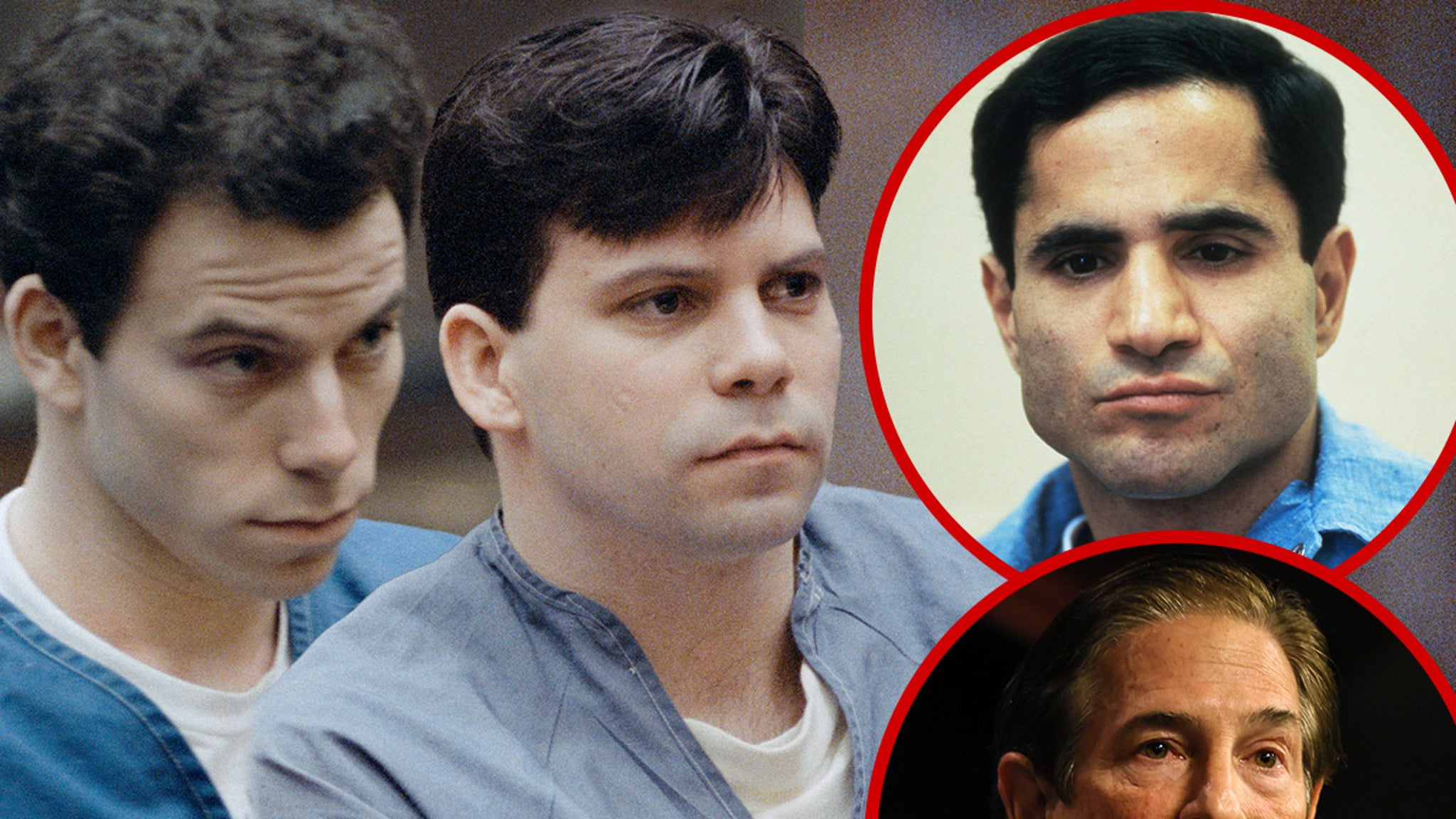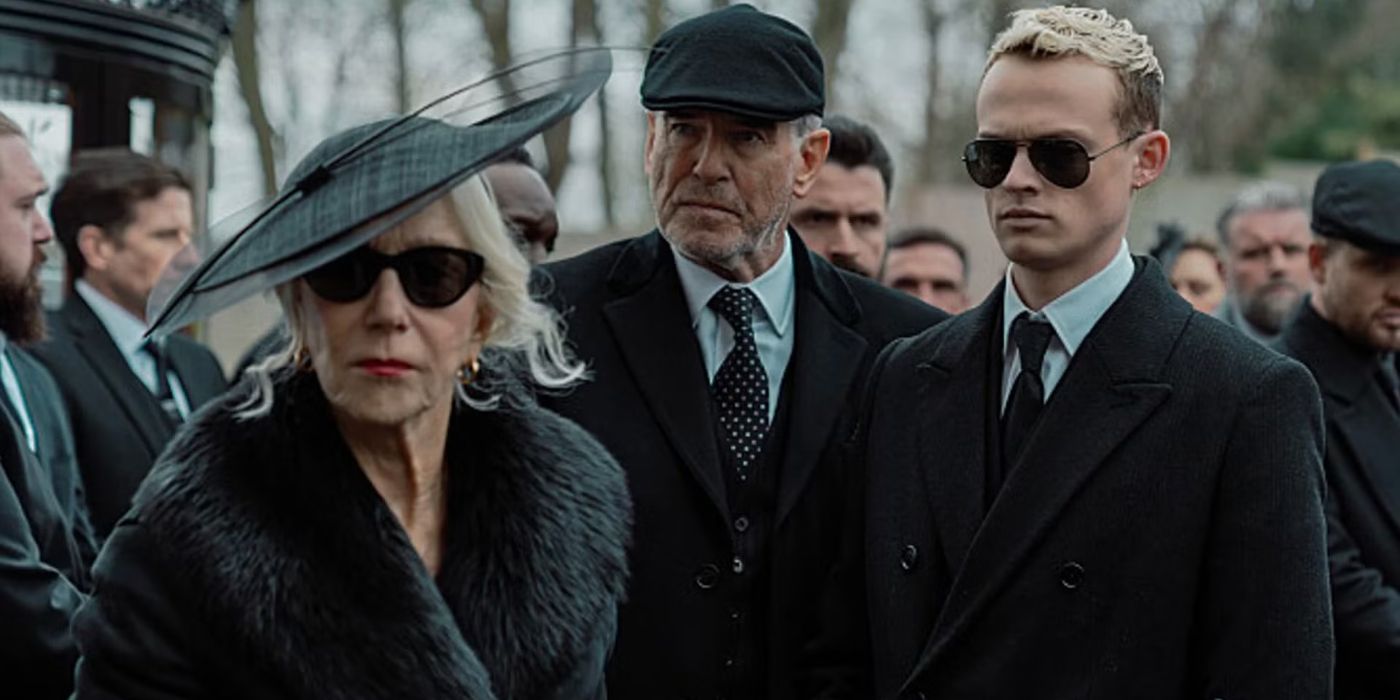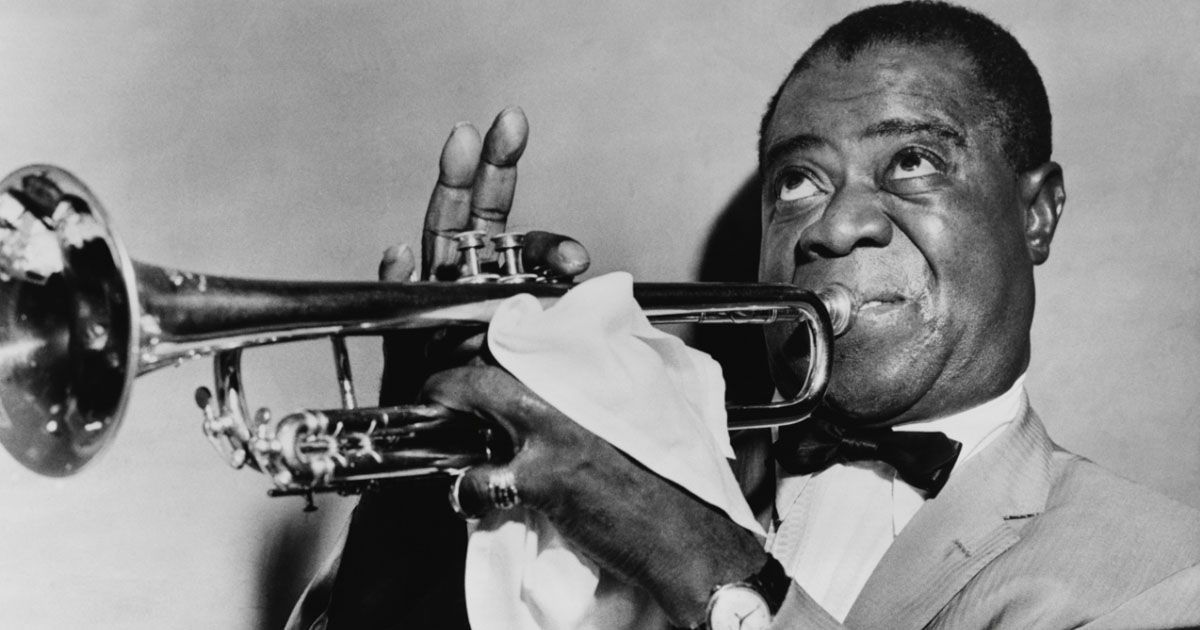Louis Armstrong’s Black & Blues reveals the iconic entertainer in a brilliantly artistic format. Armstrong recorded conversations and kept detailed scrapbooks throughout his legendary career. Documentary filmmaker Sacha Jenkins presents the jazz master using collages, archival footage, and his own words. Interviews with friends, family, collaborators, and admirers are heard as voice-over narrators but not seen. Armstrong is front and center for a remarkable experience. He was America’s most popular musician for decades but suffered humiliating exploitation and racism. Armstrong wasn’t allowed to stay in many of the venues he performed. He kept up a positive public disposition despite the constant racial degradation.
MOVIEWEB VIDEO OF THE DAY
Louis Armstrong, lovingly called “Satchmo” and “Pops”, was born dirt-poor in 1901 New Orleans. He recalls, in his trademark gravely voice, always hustling to survive. Armstrong was proud to have money in his pockets. His beloved mother kept their family fed by making delicious meals from unwanted scraps. He was taken from his mother and put in a boys home for “colored waifs.” There he excelled as a trumpet player and was quickly promoted to band lead.
Negroes could only work as servants or in the red-light district. Armstrong’s spent his youth surrounded by musicians and prostitutes. Brutal segregation dominated their lives. Lynchings, beatings, and harassment from whites was common. There were signs everywhere putting “coloreds” in their place. Armstrong learned to succeed in the white world. His superb trumpet skills were noticed by “King” Joe Oliver. The famed band leader hired Armstrong but made sure he played fifteen feet away. He, and everyone else, knew the boy was a better musician.
Armstrong’s Prospects Changed Dramatically
Apply TV+
Armstrong’s prospects changed dramatically when he followed the King to Chicago. He spent the roaring twenties traveling to Europe, playing sold-out clubs, and most importantly, recording his music. White managers, record executives, and gangsters recognized Armstrong’s talent. They made a fortune while giving him a pittance. There was little he could do. A segment has Armstrong forced to play in New York City on a whim at gunpoint. Again, he did what was needed. Armstrong put his trumpet and musicianship first. He soared to fame and stardom but was always reminded of his race. An angry Armstrong remembers a “[expletive]” sailor telling him he hated blacks, but liked his music.
Armstrong curses prolifically on tape. He’s honest about his feelings and expresses himself in a frank manner. Armstrong recorded everything for posterity. He knew his place in American history and wanted to shape his own legacy. We hear an unvarnished Armstrong giving straightforward opinions on many subjects. He avoided politics in public but certainly had strong feelings about the racism and inequality that blacks endured. Jenkins captions the recordings, so the audience can understand and feel the weight of Armstrong’s words.
Related: Smile Review: Sosie Bacon Shines in Scary Horror Film
Directly Addressing Racial Controversies
Apple TV+
Jazz trumpeter Wynton Marsalis speaks prominently throughout the film. He directly addresses racial controversies that followed Armstrong during the civil rights movement. Armstrong, with his big smile, shuffling dance moves, and appearances in Hollywood movies was accused of being an “Uncle Tom.” A new generation of black youth respected Armstrong’s music but branded him a sell-out. This bothered Armstrong tremendously, who financially supported civil rights advocates. Armstrong played to white audiences all over the world. He walked a fine line to ensure his continued financial success. Marsalis finally understands this as his prominence grew. Armstrong did what he learned as a boy in despicably racist New Orleans.
Armstrong’s kind demeanor and generosity are explored in depth. He lived with his treasured fourth wife, Lucille, in a humble Queens house for decades. These scenes are beautiful and heartwarming. Armstrong didn’t want a mansion with servants. He lived as his mother would have wanted, humbly and with respect to the neighborhood. Armstrong took Lucille everywhere he went. They always returned to the warmth of Queens. The film shows Armstrong’s office where he kept his tapes and records. It was his sanctified space to decompress. You feel honored to see the place where Armstrong felt safe to be himself.
Music carries the film like a lovely breeze. Jazz aficionados and neophytes alike will be overjoyed by the amazing soundtrack. Armstrong’s incredible trumpeting and distinctive singing permeates every frame. I almost cried during “What a Wonderful World.” You realize just how impactful Armstrong has been. He left an impression that will enlighten humanity for ages. Sacha Jenkins has delivered a masterful account of a legend. Louis Armstrong’s Black & Blues will fill your heart and soul, a must-see.
Louis Armstrong’s Black & Blues is a production of Apple Original Films and Imagine Documentaries. It will premiere exclusively on October 28th on Apple TV+.
You can view the original article HERE.






























